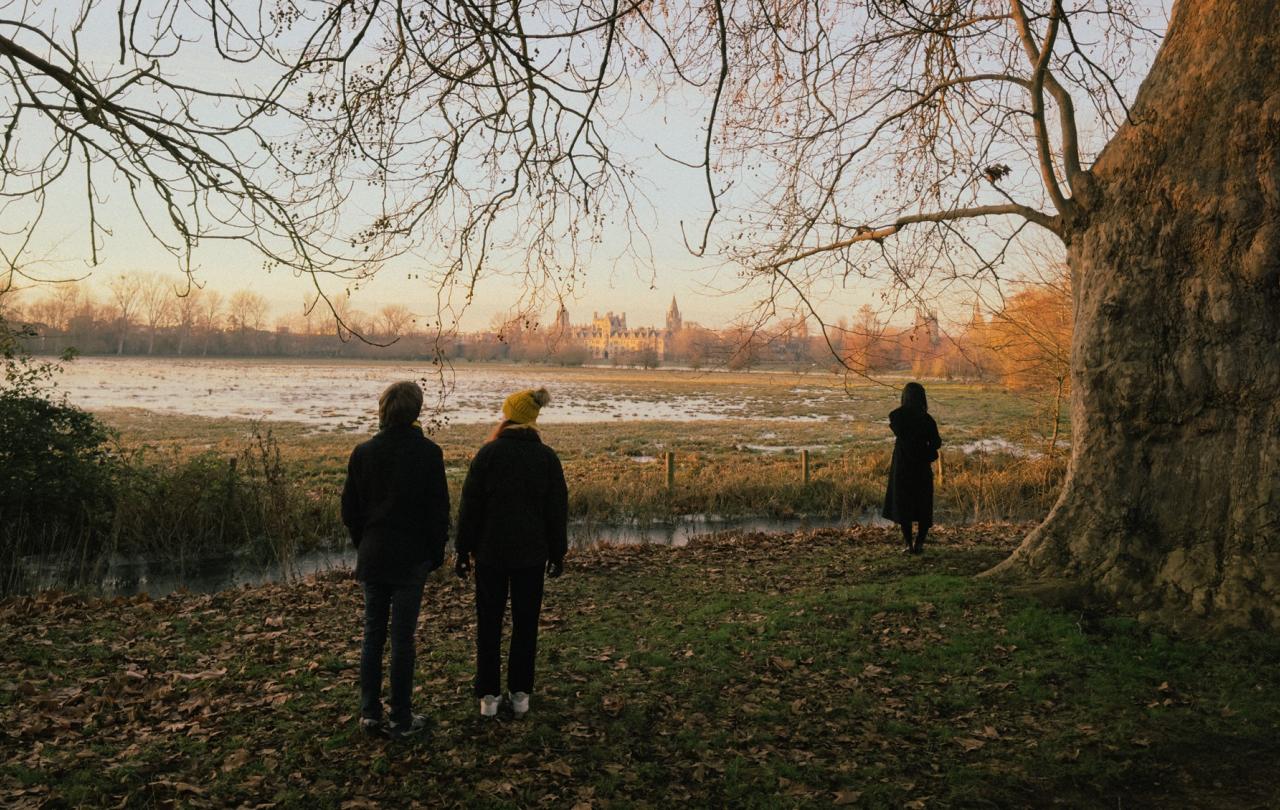Quid petis? (What do you seek?)
What will you commit to, and for how long, and at what cost or for what benefit? And how will you structure your life in order to fulfil your commitments?
These questions touch on the very mundane – gym membership, streaming subscriptions, etc. – and the most serious aspects of life, such as romantic partnerships and career moves. Do you decide these matters in accordance with an overarching philosophy of life or by some golden rules you follow?
The same questions are faced with momentous intentionality by people in religious communities. According to ancient tradition, admission to the religious life begins with a ritual answer to the question, “Quid petis?”, and the community rule ensures that its pattern of life supports and fulfils the quest.
The question of what we most want in life rarely leads people to become a monk or a nun. For most of us it seems impossible to believe that personal fulfilment could be found within the limits of a strictly vowed life. And yet, more people live under religious vows than you might first imagine.
The notion of a binding, life-long commitment is still quite an alien thought.
The most common vows in many Christian traditions are made at baptism, confirmation and marriage; as well as ordination vows for those who become clergy. But even if this makes the idea of a vowed life a little more familiar, the notion of a binding, life-long commitment is still quite an alien thought. However, a new book on The Vowed Life in the Anglican Church argues that not only do vows demand more attention within the church than they seem to have garnered recently, but they are actually a point of considerable interest and allure to those outside the Church and may be seen as liberating and life-giving for those who undertake them.
In his most famous sermon (the Sermon on the Mount), Jesus says:
“Where your treasure is, there your heart will be also.”
.At first, this seems counterintuitive. Surely he meant to say:
“Where your heart is, there will your treasure be also”?
I don’t think so. There is a romantic idea that people follow their hearts, but if that were the case, advertising would be a fool’s errand. Advertisers know very well that our hearts’ desires are unstable and that they are easily attracted by the treasures of beauty, wealth, fame and so on. And most of us will have had the experience of being led to desire something – a flashy car, a bigger house, a better job, a sexier partner – only to discover that the treasure that captured our hearts does not bring the lasting satisfaction for which we yearned. At the heart of religion is the belief that God is the treasure we seek; that only God can truly satisfy our deepest desire. For Christians, this does refer to the future - to “treasure in heaven” - but not only to that; or at least, not in a simple way. This is where vows come in.
Our identities, including the pattern of our desires, are to an extent given, not self-made.
Probably the most puzzling of all religious vows are the ones made by parents and godparents for children at their baptism. How can anyone make a vow by proxy? How can anyone dare to make a vow on behalf of someone else? Surely everyone, especially children, should be free to make their own decisions? Well, it is certainly true that vowing a child to Christian life goes against the modern ideal of the autonomous human subject who freely makes unconditioned choices for themself. But anyone who has ever raised a child will know that whatever its critical benefits, it is also a myth.
Parents make multiple significant decisions about how their child will grow up, and those decisions have a deep and lasting effect on the child, for good or ill. Such formation is inescapable and no one, not even with the help of skilful introspection or expert psychoanalysis, can step outside their personal history and make unconstrained choices about who they become. Our identities, including the pattern of our desires, are to an extent given, not self-made. This remains true even in the light of postmodern resistance to the idea that people have a fixed identity, rather than one that changes and shifts as it is performed, since the performance does not arise ex nihilo (out of nothing). We are, as Heidegger said, “thrown” into life: we are conditioned, contingent, and no achievement of individual can release us from that.
In the first act of King Lear, as his faculties begin to unravel, the king famously asks:
“Who is it that can tell me who I am?”
Christians answer this with reference to the voice of God discerned in the Hebrew scriptures:
“I have called you by name; you are mine.”
These words are spoken to those who are confirmed, when they renew their baptism vows, which (as I have said) were often made for them when they were too young to speak for themselves. The invitation at confirmation is to take mature responsibility for those solemn promises, which is easier to understand than the earlier vows made by proxy. But even this is not entirely straightforward, because while someone might joyfully receive the gift of a God-given identity – “I have called you by name” – which is not subject to successful performance, how could anyone agree honestly with the divine claim, “you are mine,” since even the greatest saint knows that their daily performance is largely governed by self-interest? This leads us to the crux of the vowed life, where we can begin to see how it is possible, and even desirable, to bind oneself to something despite the risk of failure.
This is the deep context of our lives, into which we are “thrown,” not by blind chance but by divine choice.
I have already alluded to the matter of choice in our lives and the conflicts that may arise between a religious, a modern and a postmodern perspective; but there is something more, and much more important, to be said from a Christian point of view. The Christian view is that it is not so much our choice about God that matters than God’s choice about us. God chose to create the world and God chooses each one of us, which is the only choice that matters ultimately. This is the deep context of our lives, into which we are “thrown,” not by blind chance but by divine choice. Fundamentally, therefore, all religious vows are about choosing to be who we already are; choosing to live as one who has been chosen by God. Every other choice is made in this light so that whatever happens, no matter what choices we make in the future, good or bad, God’s fundamental choice of us never changes. And the experience of living under this promise is one of liberation.
The (post-)modern ideal of complete personal freedom necessarily entails total responsibility, so that the overall success or failure of our lives lies in our hands alone. Perhaps a few narcissistic individuals can easily accept this – “He was a self-made man, and he worshipped his creator!” – but it is a heavy burden of responsibility. The religious alternative does not deny the importance of responsibility - the Bible is concerned from beginning to end with the demands of justice and righteousness - but it does not make our performance the final measure of our worth, and therefore of our identity. If we have bound ourselves to the identity God gives, any account of ourselves such as, “I am a failure … a loser … a disappointment” is covered by “I am a beloved child of God”. It is by living into the divine indicative – “I have called you by name” – that we can begin to let go of self-reliance and welcome and inhabit the sustaining power of God’s “you are mine”.
For sure, the idea of binding, life-long promises may be countercultural today but, rightly understood, they can be seen as joyful and liberating. Those who seek this way of life seek a heavenly treasure that enriches life at every step.
Further reading
The Vowed Life, eds. Sarah Coakley & Matthew Bullimore (Canterbury Press, 2023)






